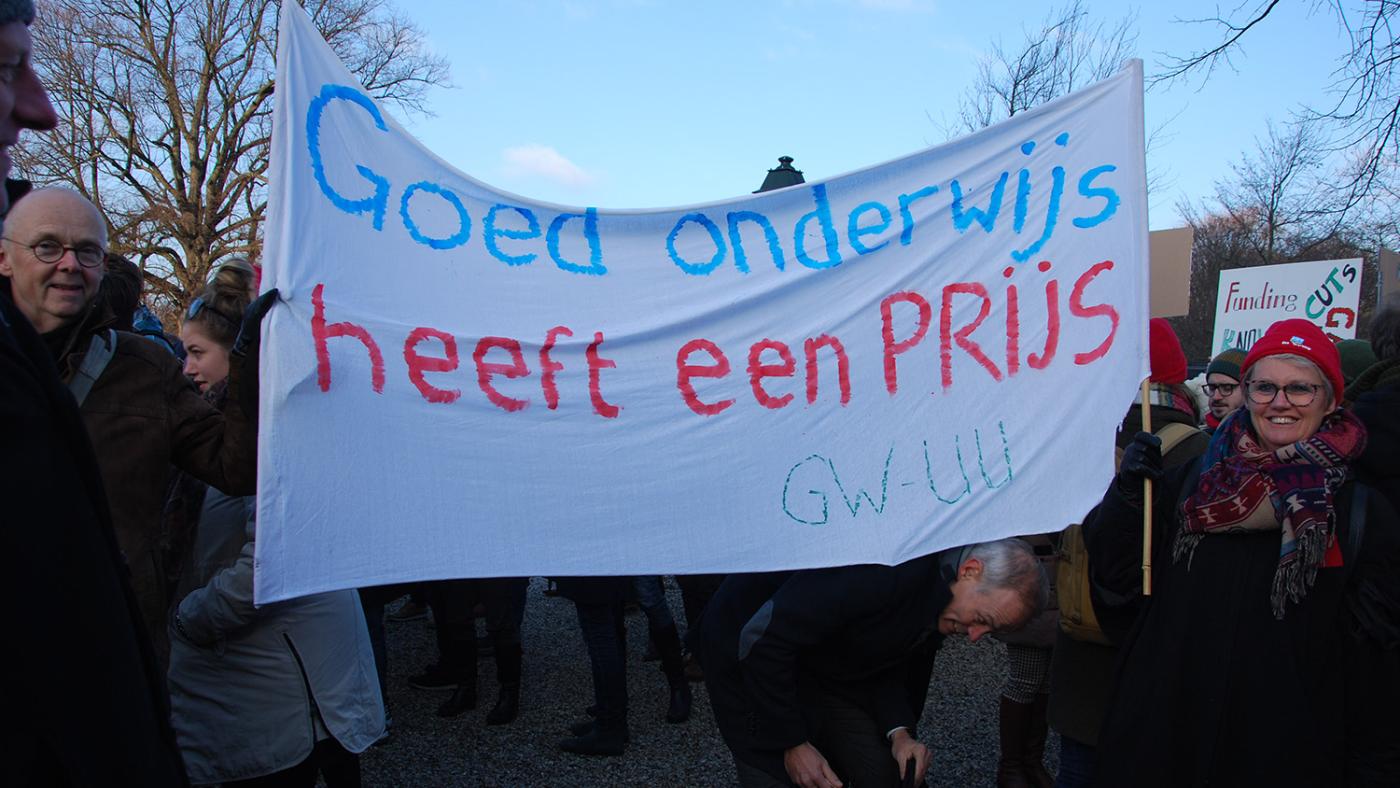1,200 jobs at risk and a blow for students
Universities and students taken aback by planned cutbacks

It’s “a disaster for students”, says Jouke de Vries, interim president of umbrella organisation Universities of the Netherlands (UNL). The coalition parties PVV, VVD, NSC and BBB want to save a few hundred million euros on higher education.
Jobs in jeopardy
“This doesn’t align with the ambitions of the coalition parties to reinforce the knowledge economy and the earning capacity of the Netherlands”, observes De Vries. “This puts the future of young people in our country at stake.”
UNL has calculated that the parties are jointly saving a structural amount of 500 million euros on higher education and research. “This jeopardises the job positions of 1,200 scientists”, says UNL.
Heavy blow
The Dutch National Students’ Association (ISO) is addressing students directly in its press release: “You’ve received blow after blow with the increase of tuition fees, decrease of the basic student grant and an interest that’s five times higher than it used to be.”
The basic grant for students living away from home was temporarily supplemented by 164 euros per month because of the inflation and this arrangement will lapse in September. The coalition parties don’t want to extend it.
“Thousands of students will once again struggle financially”, warns ISO. “This is a heavy blow for students who depend on a reasonable basic student grant to make ends meet; they will be much worse off in the coming academic year.”
Penalty for slow students
No one saw the comeback of the penalty for slow students coming, says ISO. It concerns a fine of three thousand euros per year for students who take longer than one year extra to finish their Bachelor’s or Master’s degree. “Just like that, the introduction of this measure means the new cabinet will be making €282 million off this new generation.”
The fine will particularly affect young people from families with a low income, UNL agrees. It may raise the threshold for them to go to university.
Pressure to perform
Elisa Weehuizen, president of the Dutch Student Union, is greatly concerned. “That penalty for slow students will punish all students who take a bit longer to complete their studies. It remains to be seen if a year in student government or an illness will be a valid reason not to have to pay the fine.”
She expects the pressure to perform on students will increase considerably, also because the parties agreed not to relax continuation agreements. “This policy will be disastrous for student wellbeing. There’s nothing to suggest these parties are even remotely willing to improve that. They are brushing aside all expert recommendations in one fell swoop.”
Bad luck generation students
The extra compensation of 1.4 billion euros for the students belonging to the bad luck generation is also much lower than promised before the elections. “That’s 4 billion euros less than what Pieter Omtzigt of NSC had assured us of in his amendment.”
She also finds the intended cutbacks on science worrisome: “It’s up to the students and institutions to make their dissatisfaction heard as clearly as can be in the coming months.”